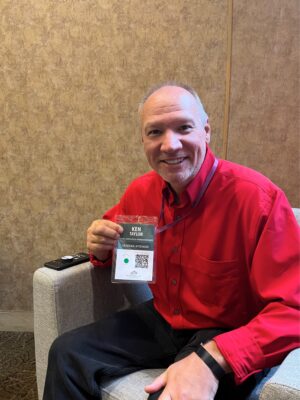
Podcast: Play in new window | Download (Duration: 18:54 — 13.1MB) | Embed
Subscribe: Apple Podcasts | Spotify | Email | RSS | More
Patient advocates from the Healthe Voices 2022 conference describe how they recognize success in their advocacy.. Snapshots of diverse lived experiences.
Blog subscribers: Listen to the podcast here. Scroll down through show notes to read the post.
Subscribe to Health Hats, the Podcast, on your favorite podcast player
Episode Notes
Prefer to read, experience impaired hearing or deafness?
Find FULL TRANSCRIPT at the end of the other show notes or download the printable transcript here
Contents with Time-Stamped Headings
to listen where you want to listen or read where you want to read (heading. time on podcast xx:xx. page # on the transcript)
Please comment and ask questions
- at the comment section at the bottom of the show notes
- on LinkedIn
- via email
- YouTube channel
- DM on Instagram or Twitter to @healthhats
Credits
Intro and outro music by permission from Joey van Leeuwen, Drummer, Composer, Arranger
Web and Social Media Coach Kayla Nelson @lifeoflesion
The views and opinions presented in this podcast and publication are solely the responsibility of the author, Danny van Leeuwen, and do not necessarily represent the views of the Patient-Centered Outcomes Research Institute® (PCORI®), its Board of Governors or Methodology Committee.
Inspired by and grateful to Estela Mata, Sharnae ‘Nae” Smith, Jim Snedden, Christine Von Raesfeld, Hetlena Johnson, Jason Crum, Jason Jepson, Brooke Abbott, Phyllisa DeRoze, Bethany Yaiser, Ken Taylor, Cindy Chmielewski, Jesus Guillen, Christopher Quibar, Stephanie Chuang, Michelle, Nadine Baker, Jenna Greene, Kara Beck, Jasmin Pierre, Sue Rericha, Alexis Newman, Ryan Williams, Sam Seavey, Andrew Shorr, Howard Chang, Rachel Star Withers
Links
Raw, unedited transcript of all responses to question #2
Healthe Voices website
Phyllisa DeRoze website re: Diabetes Diagnosed Not Defeated
Bethany Yeiser CURESZ (Comprehensive Understanding via Research and Education in Schizophrenia). Mind Estranged: My Journey from Schizophrenia and Homelessness to Recovery Paperback – July 10, 2014
Stephanie Chiang The Patient’s Story
Kara Beck @karabear_rny Instagram
Books on Alzheimer’s by Ryan Williams
Sam Seavy’s The Blind Life YouTube Channel
Andrew Schorr Patient Power
YouTube Video of this episode
Related podcasts
About the Show
Welcome to Health Hats, learning on the journey toward best health. I am Danny van Leeuwen, a two-legged, old, cisgender, white man with privilege, living in a food oasis, who can afford many hats and knows a little about a lot of healthcare and a lot about very little. Most people wear hats one at a time, but I wear them all at once. I’m the Rosetta Stone of Healthcare. We will listen and learn about what it takes to adjust to life’s realities in the awesome circus of healthcare. Let’s make some sense of all this.
To subscribe go to https://health-hats.com/
Creative Commons Licensing
The material found on this website created by me is Open Source and licensed under Creative Commons Attribution. Anyone may use the material (written, audio, or video) freely at no charge. Please cite the source as: ‘From Danny van Leeuwen, Health Hats. (including the link to my website). I welcome edits and improvements. Please let me know. danny@health-hats.com. The material on this site created by others is theirs and use follows their guidelines.
The Show
Proem
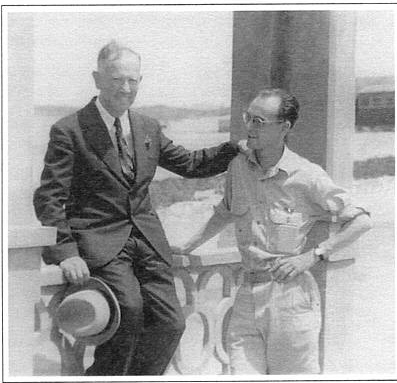 Several listeners asked, Danny, when did you first realize health was fragile? My parents and grandparents were Holocaust survivors. I attach a photo of my father’s father, Opa Henri, with my Uncle Nat when he returned home after being traded from Bergen Belson as a prisoner of war. Another long story. My mother never spoke of it when we were young, but my maternal grandmother, Lillie Herzog, and my father, Ruben, did. So, I learned much about the fragility of life from a young age. My father died at 45 when I was 19. That most life-changing event knocked my life into a new orbit.
Several listeners asked, Danny, when did you first realize health was fragile? My parents and grandparents were Holocaust survivors. I attach a photo of my father’s father, Opa Henri, with my Uncle Nat when he returned home after being traded from Bergen Belson as a prisoner of war. Another long story. My mother never spoke of it when we were young, but my maternal grandmother, Lillie Herzog, and my father, Ruben, did. So, I learned much about the fragility of life from a young age. My father died at 45 when I was 19. That most life-changing event knocked my life into a new orbit.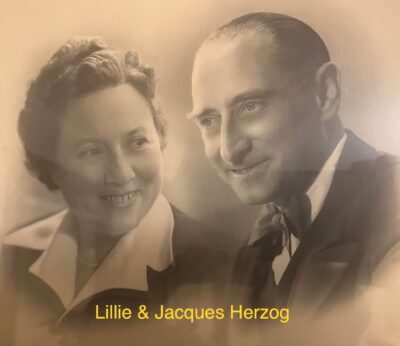
How do you recognize success in your advocacy work? In this episode, we listen to answers to the second question I asked of 26 people at the Healthe Voice Conference. Almost everyone answered some variation of I feel success when I affect one person’s life. I won’t repeat that response twenty times. Instead, I’ll share a few of the permutations and experiences some people made. I will link the transcript of all the answers in the show notes. I won’t edit them for readability.
Podcast intro
Welcome to Health Hats, the Podcast. I’m Danny van Leeuwen, a two-legged, cisgender, old white man of privilege who knows a little bit about a lot of healthcare. And a lot of our very little, we will listen and learn about what it takes to adjust to life’s realities in the awesome circus of healthcare. Let’s make some sense of all of this.
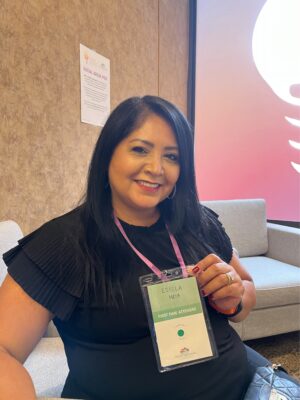 Estela Mata
Estela Mata
When you think about your advocacy, how do you recognize success?
Wow. I’ll tell you in my advocacy that I recognize success if I can help one person. Okay. Wow.
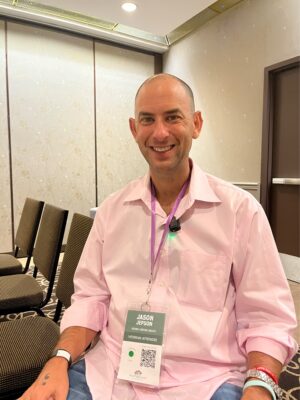 Jason Jepson
Jason Jepson
Not by a paycheck, not living in a mansion, but by the number of comments I get from people with my diagnosis. Thank you so much. I feel less alone. Or caregivers, and now I understand what my loved ones are going through. They have schizophrenia, and it’s powerful. That’s the best. I would rather have that than the money. You know, it inspires me to keep going. I’m doing what I should be doing.
Sharnae ‘Nae” Smith
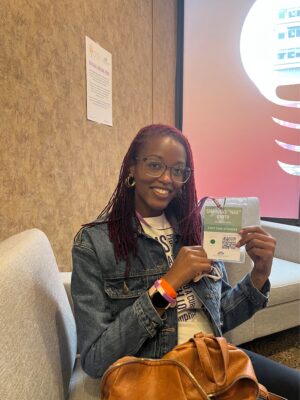
Oh my gosh. Um, this will be the craziest thing when someone comes up to me, and they’re like, because of you, I’m going to keep going. Because of your story, my life changed. I got into advocacy work because when I first got diagnosed, people didn’t know what lupus was. I didn’t have anybody to turn to, so I felt like, okay, I don’t want anybody else to experience what I’ve experienced when they get diagnosed.
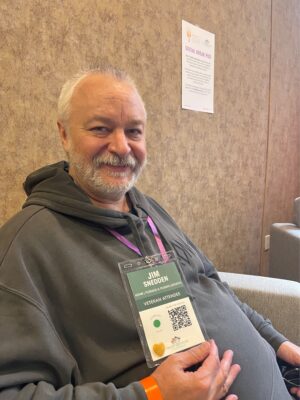 Jim Snedden
Jim Snedden
I have a story to go with that. I was in the doctor’s office, and I said, come on, come on. I need my medicine. Give it to me now. And he laughed. Uh, it’s biologic. He said I wish everyone were as willing to use medication as you are, and I said, if you have somebody that you know needs it, please give them my business card. And I handed him a stack of business cards. About six months later, I got a phone call, and I talked to the guy, and we bounced back and forth for almost an hour. He called me back two months later. He says, Jim, he says, my life has changed thanks to thanks to this medication. Thank you so much. He says I went from 90% covered in psoriasis to now I’m down to about only 5%. I’m on the beach. I haven’t been here in years. Thank you so much. That is a success.
Christine Von Raesfeld
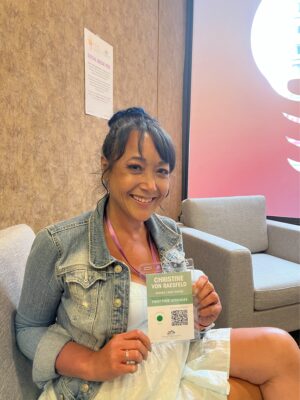
That’s a hard one, right? Because I think, I think a lot of us in advocacy, we put a lot of work in, and we don’t see those immediate results. I think what gives me a measure is meeting people who have that same vision and sharing my thoughts and getting people to feel a little bit differently, you know? And I think that’s just a measure of my success: getting someone to think outside of their box and consider something else. I think if I can do that, there’s a shot.
Jason Crum
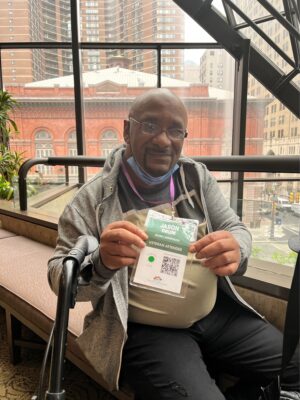
I recognize success by people adhering to what I’m teaching you. If I see the people, they tell me they got tested, and their test is just negative. You know, that doesn’t make, that doesn’t make me successful. It doesn’t make my advocacy successful because they got a test. What makes it successful is that they’re spreading what I’ve taught them to other people.
Brooke Abbott
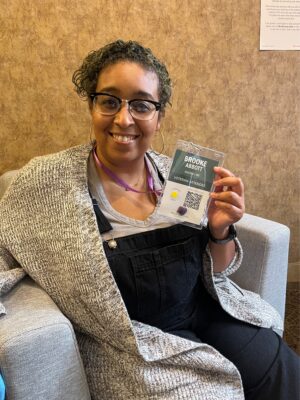
And it doesn’t come in the thank yous. It comes from someone asking for something, and I can either connect them to someone else or provide a resource for them.
Bethany Yeiser
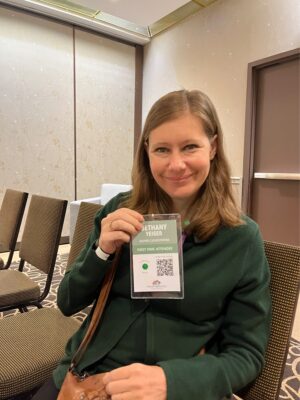
Success is when I talk with the caregiver, and they tell me, or even a patient, and they tell me, because of your videos and our conversations and the information you provided, you know, my life has changed. I have a better understanding of what people with schizophrenia think—more knowledge to take with me to my doctor because of you. Something has changed in a positive sense, and that’s very rewarding.
Ken Taylor
I used to think, well, you must have a room packed to change the minds of, and all this, it’s, it’s not that at all. Um, because everybody has a story to tell. Over the years, I’ve changed my mind about what advocacy is, does, and means to each person. You know, the obvious as far as medical attention, did you get the proper treatment? How do you find the right treatment? What are you diagnosed with? Do you get an expert? Do you, um, have any, anything like that? Helping somebody find, even find the correct diagnosis. Because there are a lot of misdiagnoses out there and there are a lot of overlapping symptoms among conditions. It is not, you know, easy sometimes to diagnose. Um, so that’s a, you know, a success. Treatment options are a huge success if you can find somebody, you know, get somebody going down the right path. Um, and then, the whole mental aspect of it. Nobody will have a diagnosis or a catastrophic event and not be affected mentally. Right. It’s just the way it is. And we’ve, we’ve talked about that quite a bit this weekend, haven’t we?
Cindy Chmielewski
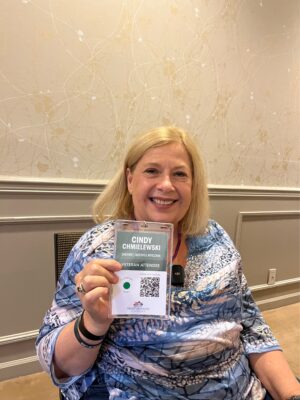 That’s hard. I guess what I’m doing in advocacy is more patient education. Because I’m a retired teacher, learning about my cancer, knowing the treatment options and who were the doctors I should see, and just learning about things were what made me finally able to start living with my cancer. Before that, I kept on second-guessing, Am I doing what I’m supposed to be doing? Does my doctor know what’s going on? Am I getting the best treatment? So, I just kept worrying because it took me a while to be diagnosed. I was misdiagnosed in the beginning, so that fear was there. But once I learned about what should be going on. It became, it became more peaceful for me. And able to live my life. And I think so I went into the area of patient education because there are others like me there. Others don’t care there. Everything’s in the doctor’s hands, but others are like me. So, I think being able to talk to someone one on one. Educate them, have them connect with a specialist and start receiving treatment, and then have that person come back and say, oh, I’m doing well. Or thank you for sharing this resource.
That’s hard. I guess what I’m doing in advocacy is more patient education. Because I’m a retired teacher, learning about my cancer, knowing the treatment options and who were the doctors I should see, and just learning about things were what made me finally able to start living with my cancer. Before that, I kept on second-guessing, Am I doing what I’m supposed to be doing? Does my doctor know what’s going on? Am I getting the best treatment? So, I just kept worrying because it took me a while to be diagnosed. I was misdiagnosed in the beginning, so that fear was there. But once I learned about what should be going on. It became, it became more peaceful for me. And able to live my life. And I think so I went into the area of patient education because there are others like me there. Others don’t care there. Everything’s in the doctor’s hands, but others are like me. So, I think being able to talk to someone one on one. Educate them, have them connect with a specialist and start receiving treatment, and then have that person come back and say, oh, I’m doing well. Or thank you for sharing this resource.
A word from our sponsor, Abridge
Record your healthcare conversations with doctors and other clinicians with ABridge. Push the big pink button and record. Read the transcript or listen to clips when you get home. Check out the app at ABridge.com. Or download it on the Apple app store or Google play store. Let me know how it went.
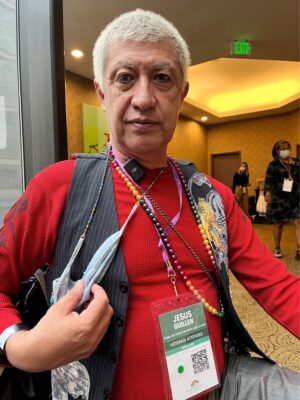 Jesus Guillen
Jesus Guillen
For me, if, every day, at least one person I can make smile, or I give them some information on somebody, just say, Thank you. You know, because I could see this information or felt better in this way. I even sometimes ask myself, how did we do it? Because now, I have people tell me we talk about three suicides. One of them is in England, and I’m still amazed at how, even through social media or things like that, we can do that, you know, we can help people. So, for me, success is. First, I feel good about what I’m doing. But second, if one person, I don’t need more than that.
Christopher Quimbar
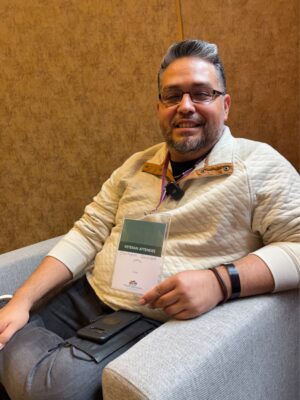
I think when you, uh, believe in something so passionately, and that affects everybody across the world, such as your health. Success is reaching as many people as possible and understanding that you’re affecting their lives as much as health has affected your life. So, when you reach out to people, that ripple effects start to come back and, um, you know, you see the difference it’s making in people. That’s, that’s when you realize you’re doing something right.
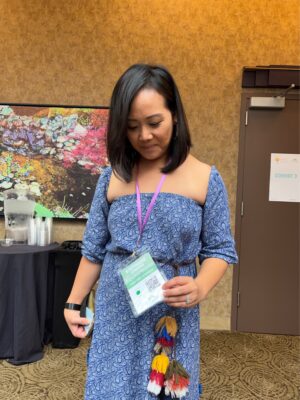 Stephanie Chuang
Stephanie Chuang
It’s a great question. I find that success’s number one goal for me is when I get comments from our audience and the people who are watching and reading us that the content that we’re putting out has been so impactful. Because my background storyteller love talking to people just like you. And so created a platform called the patient’s story. The patients’ story. It is focused on cancer because I want to do one area, and as you know, cancer is made up of many situations, um, and experiences. But what I can say, regardless of whether it’s cancer or something else, is in health. We have many shared emotions and experiences, and our stories are not the same as has been talked about but being able to put the stories out there for people to understand, I am seen, I am heard, I’m connected, I am not alone. It is so important—the patient story.com.
Michelle Nadine Baker
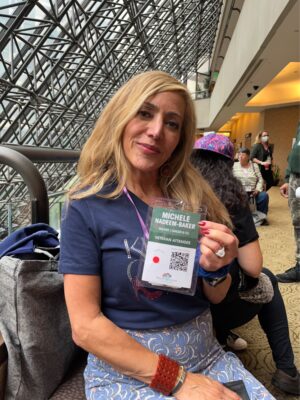
I’m always my worst critic, but the first time I felt successful was when someone wrote to me and told me how much I was doing. My advocacy helped them in their life with CLL, and that was such a warm feeling that just made my day, not only my day but what I had been doing. And I was like, this is precise. I’m in the right place at the right time. And all roads have led me here. Whether I knew it or not, that was just what it was meant to be because my background is in broadcast journalism. And in communications. And here I was communicating, um, as a journalist, I’ll be it online, uh, to help others and by having something to help speak to them. Cause there was hardly a thing at the time when I started doing this. The intranet wasn’t what it is today in 2022, and my doctor had no information to give me the day I was diagnosed, which drove me insane. I was like, this is got to change. Someday when I’m ready, I’ll change this.
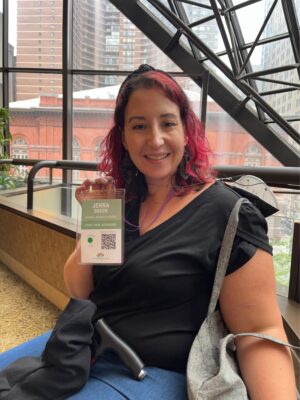 Jenna Greene
Jenna Greene
Well, that’s an excellent question. Success is a combination of tiny things, including feeling comfortable to be vulnerable with you during this interview or being silly on an Instagram video. The more critical items, such as testifying on legislative bills that will help the greater community—and putting out content that allows people to be their own best healthcare advocates and hear from people in the community how that benefits them. Um, for me, that’s huge. I don’t care if many people like it or follow me. I do marketing for a living, so I enjoy the statistics behind it, but I don’t find success. I find success in helping someone live their best life, whatever that means to them.
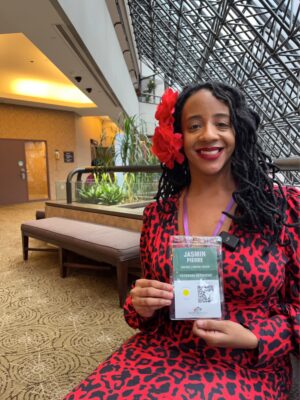 Jasmin Pierre
Jasmin Pierre
Wow, that’s another good question. Honestly, being here right now and just being amongst all of the other advocates because, you know, everybody is not invited to this conference. And it is just being surrounded by many good people and having meaningful conversations. Like, it just makes me feel like I belong here.
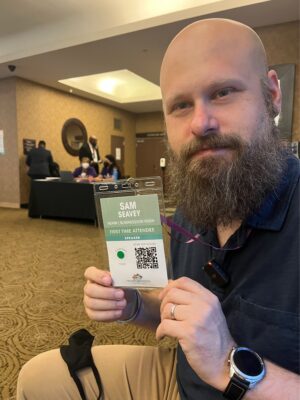 Sam Seavey
Sam Seavey
It must be all the emails. I’m on social media, so I get a lot of comments from people in the community, letting me know how much my videos have helped them. I advocate for the blind and the visually impaired. And when someone loses sight, especially later in life, it’s terrifying. Uh, sight loss is the second largest fear, people’s biggest fear. And so they can watch some of my videos and realize that it’s not the end of the world. You can thrive with sight loss. Uh, it’s just a matter of learning how to. And so when I get those emails of how thankful they are that they found my videos, I was able to help them through that time. That’s genuinely how I measure the success of my advocacy.
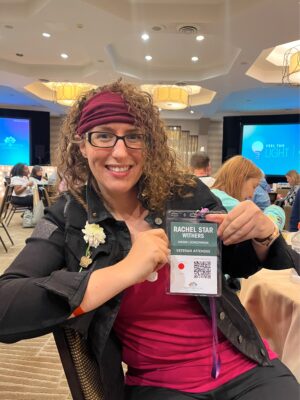 I don’t see it as a success or not because, for me, it’s just talking about what I’m going through. That’s just part of everything I do, and if people respond, that’s great. If they don’t, that’s fine also. It’s not, you know, it’s not meant for everybody. Not everyone you know is dealing with a mental disorder. However, I will say that so much of the world is open nowadays. I think a lot more people are exposed to severe mental illnesses than they were in the past where it was, you know, kept quiet. It’s more likely now that you’re going to hear someone says, oh yeah, actually, I have a family member who’s dealing with that. Oh, one of my friends turns out this. Or just see it more on TV with like drug ads and things. You’re like, Oh wow. I never heard about tardive dyskinesia, and now there are actual drug ads on tv.
I don’t see it as a success or not because, for me, it’s just talking about what I’m going through. That’s just part of everything I do, and if people respond, that’s great. If they don’t, that’s fine also. It’s not, you know, it’s not meant for everybody. Not everyone you know is dealing with a mental disorder. However, I will say that so much of the world is open nowadays. I think a lot more people are exposed to severe mental illnesses than they were in the past where it was, you know, kept quiet. It’s more likely now that you’re going to hear someone says, oh yeah, actually, I have a family member who’s dealing with that. Oh, one of my friends turns out this. Or just see it more on TV with like drug ads and things. You’re like, Oh wow. I never heard about tardive dyskinesia, and now there are actual drug ads on tv.
Reflection
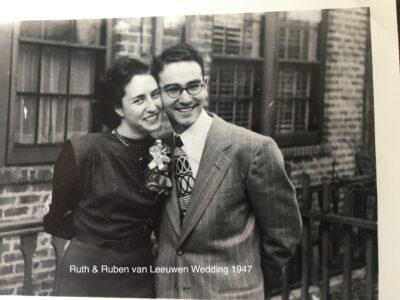 Wow. Thanks for sharing. Some people reflected on hearing a diagnosis or misdiagnosis. Others reflected and abrupt change in function through illness or accident are the death of a loved one. Some feel sad and disappointed. Others hopeful and empowered, all crossed a threshold, a before and an after. All told a story. What’s yours? Who do you tell?
Wow. Thanks for sharing. Some people reflected on hearing a diagnosis or misdiagnosis. Others reflected and abrupt change in function through illness or accident are the death of a loved one. Some feel sad and disappointed. Others hopeful and empowered, all crossed a threshold, a before and an after. All told a story. What’s yours? Who do you tell?
Podcast outro
I host write, edit, engineer and produce Health Hats, the Podcast. Kayla Nelson provides website and social media consultation and creates video trailers. Joey van Leeuwen supplies musical support, especially for the podcast intro and out. I play bari sax on some episodes alone or with the Lechuga Fresca Latin Band.
I’m grateful to you who have the most critical roles as listeners, readers and watchers. See the show notes, previous podcasts, and other resources through my website, www.health-hats.com and my YouTube channel. Please subscribe and contribute. If you like it, share it. See you around the block.

